Vocabulary development Life Science Worksheets for Ages 7-8
5 filtered results
-
From - To
Enhance your child's vocabulary with our engaging Life Science Worksheets designed for ages 7-8! These worksheets combine scientific concepts with vocabulary building, fostering both knowledge and language skills. Young learners will explore essential life science topics such as ecosystems, plant and animal life, and environmental awareness, all while expanding their word connections. Each activity is crafted to promote critical thinking and language retention, supporting a comprehensive learning experience. With colorful illustrations and interactive tasks, these worksheets make learning fun and effective. Dive into the fascinating world of life science and watch your child's vocabulary thrive today!
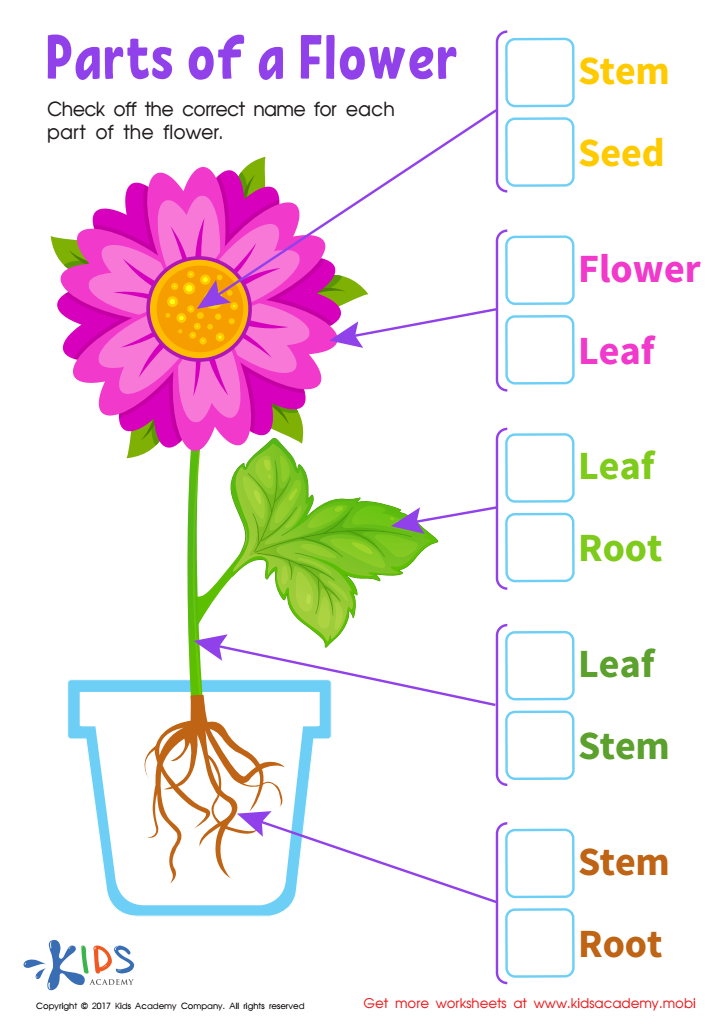

Parts Flower Printable
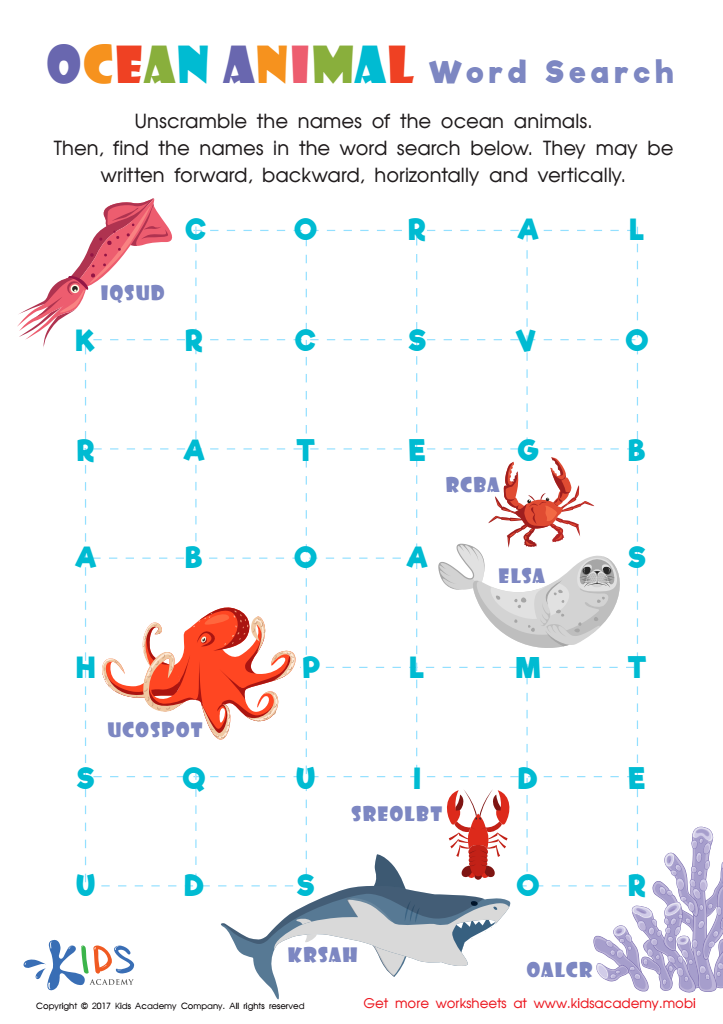

Ocean Animals Word Search Printable
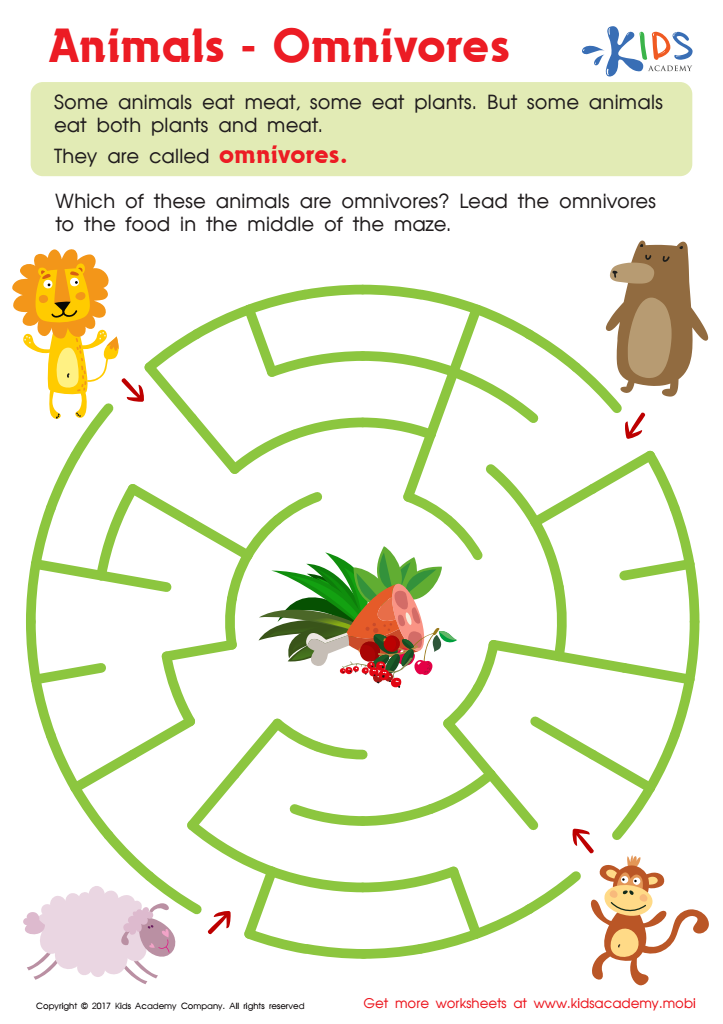

Omnivores Animals Worksheet
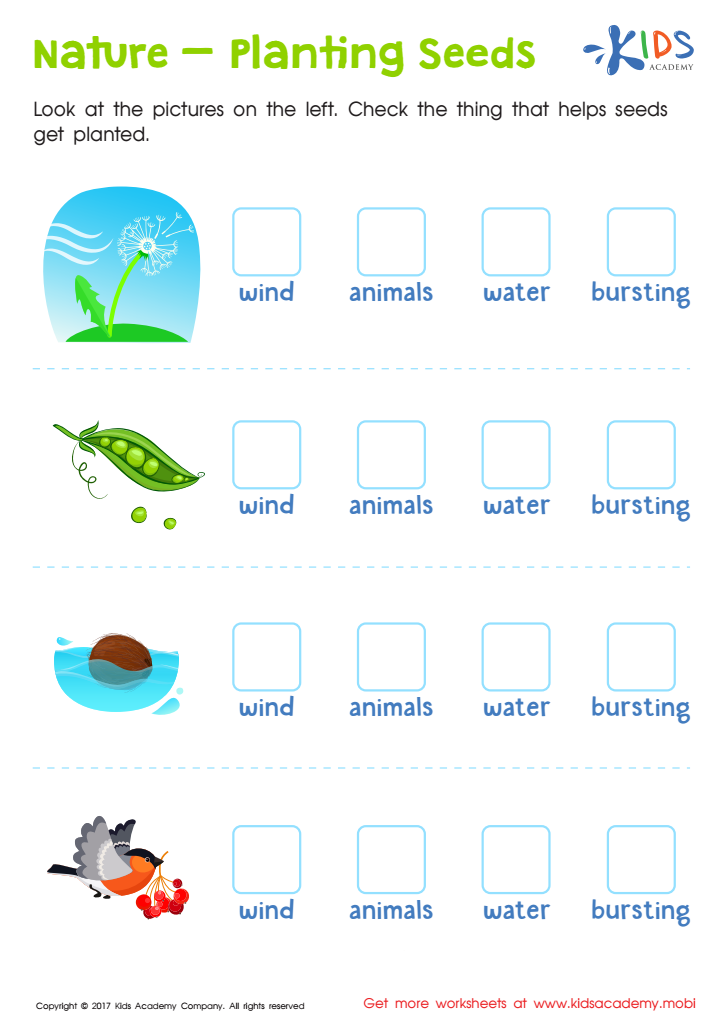

Nature Planting Seeds Worksheet
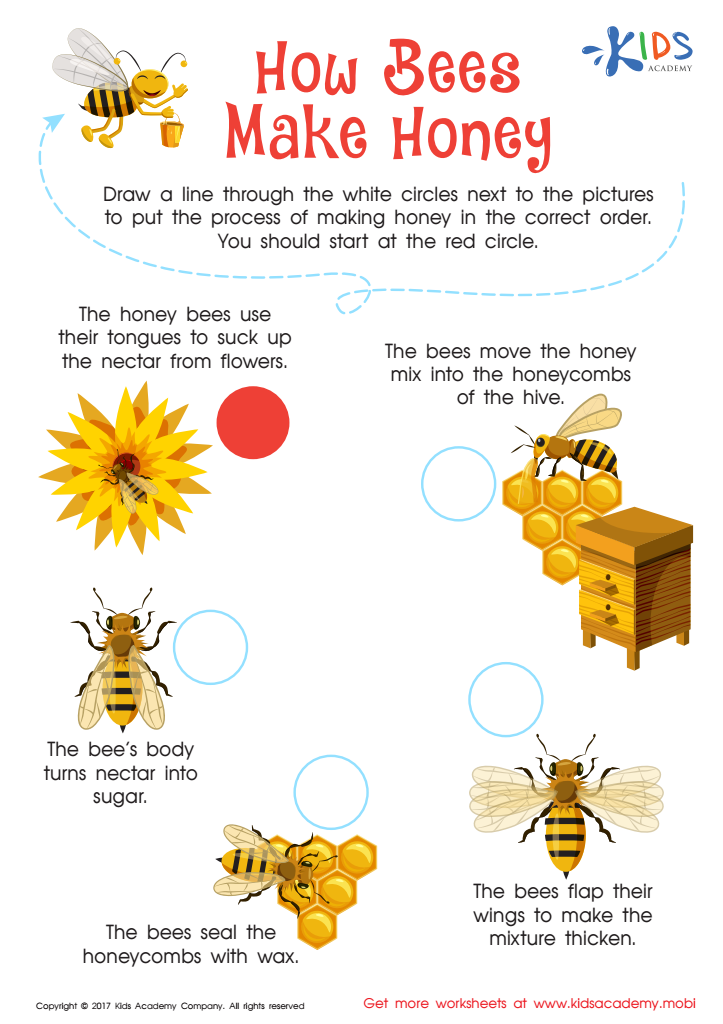

Honey Bee Worksheet
Vocabulary development in Life Science for ages 7-8 is crucial for several reasons. At this stage, children are naturally curious and eager to explore the world around them. By building a strong vocabulary in Life Science, parents and teachers can enhance this curiosity, enabling children to articulate their thoughts, ask questions, and engage meaningfully with scientific concepts.
A rich vocabulary aids comprehension, allowing young learners to understand complex terms like "photosynthesis," "ecosystem," and "habitat." This foundational knowledge not only empowers them in their current studies but also prepares them for more advanced concepts in later grades. Furthermore, an expanded vocabulary boosts critical thinking skills, encouraging children to analyze and discuss scientific ideas effectively.
Moreover, vocabulary development in Life Science fosters a sense of connection to the environment, nurturing environmentally-conscious citizens who understand the impact of human actions on nature. Engaging with scientific language can also promote literacy skills, as children learn to read and write about their observations and discoveries.
In summary, parents and teachers should care about vocabulary development in Life Science as it cultivates curiosity, comprehension, critical thinking, and environmental awareness, all of which are essential for fostering a lifelong love of learning and responsible citizenship.
 Assign to My Students
Assign to My Students















